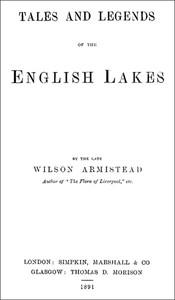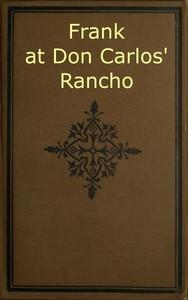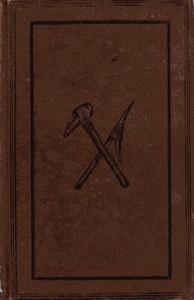|
|
Read this ebook for free! No credit card needed, absolutely nothing to pay.Words: 62405 in 12 pages
This is an ebook sharing website. You can read the uploaded ebooks for free here. No credit cards needed, nothing to pay. If you want to own a digital copy of the ebook, or want to read offline with your favorite ebook-reader, then you can choose to buy and download the ebook.

: Tales and Legends of the English Lakes by Armistead Wilson - Legends England Lake District; Tales England Lake District; Folklore England Lake District@FreeBooksWed 07 Jun, 2023 's side, Whilst million-winged deaths were whistling round, Now feels his heart beat high; strong throbs each pulse, His kindling eyes flash fire: upright he stands, As when on some dread, memorable day He saw the Frenchmen strike, or Spaniards burn. His tender spouse, the dear, the soft reward Of all his toils, astonish'd with the din, Clings to his side, half-pleased and half-afraid; When softer echoes roll the distant roar, She smiles; but when the air-affrighting guns With iron clamours shake th' impending rocks, She trembling presses hard her husband's hand, And weeps to think the perils he has 'scap'd. "But hark! 'tis silent! see, the fleet retires! The mellow horns now pour victorious sounds, Whilst every rock returns the softened strain. O! now for Shakspeare, or for Milton's muse, To paint this mingled tide of harmony! Each cliff, each rock, each mountain, wood, and dale, Return a varied note; it floats in air; It mixes, meets, returns; 'tis soft, 'tis loud: As if th' unnumber'd spirits of the rock Held their a?rial concerts 'midst the hills; And to his golden harp each join'd his voice, To welcome to their bower the 'Fairy Queen.' "Thus joyous and delightful pass'd the day, Yet not unruffled was this tide of joy: The fair, the innocent Amelia was The pride and flower of all the virgin throng! Her long Damoetas loved, she too loved him, But looks alone revealed the mutual flame, For virgin modesty had bound their thoughts In chains, as yet unbroken. On this day, Whilst she in rapture viewed th' enchanting scene , Her vessel rolling, headlong plunged her in The blue profound! She sank, then rose again; Then sank, to rise no more! Damoetas, near, Beheld her fall: of life regardless then, He leaped into the flood; with nervous arm He cut the crystal deep, and plunging down, Seized, and brought her up again to life. "Restored now, she op'd her radiant eyes, And looking gratitude ineffable, 'Is it then you, Damoetas? you whom long My virgin heart hath own'd!' She could no more: The rosy hue again forsook her cheek, The light her eyes, and pallid death awhile Seemed to return and re-demand his prey. What then, Damoetas, were the dire alarms That rent thy manly bosom? Love, despair, Grief, and astonishment, exert at once The utmost of their force to tear thy soul! But see, the rose again resumes its seat Upon her cheek! again her op'ning eye Beams softened lustre! Kneeling by her side Damoetas press'd her hand; in falt'ring words Propos'd his am'rous suit. Her parents near, Relieved now from the heart-corroding fear, First poured in tender words their grateful hearts, Then to Damoetas gave the willing hand Of their beloved Amelia. Instant joy Flushed lively in his cheek, and fired his heart With all the rapt'rous bliss of mutual love. He tried in vain to speak, for words, alas! Could ill express tumultuous joys like his; He stammer'd, blush'd, and thanked them in thought. "And now the fiery charioteer of day Drove down the western steep his blazing car, When homeward all return to close their sports, And usher in with dance the sable night. The sprightly music sounds, the youths advance, And blooming virgins from the beauteous group: Then joined in couples, active as the light, They tread the mazy dance; the swains the while Join in sweet toil, and press the given hand, And slyly talk of love; or else, askance, Speak by their looks the feelings of the heart." THE SHEPHERD OF GREEN-HEAD GHYLL. A TALE OF GRASMERE VALE. If from the public way you turn your steps Up the tumultuous brook of Green-head Ghyll, You will suppose that with an upright path Your feet must struggle; in such bold ascent The pastoral mountains front you, face to face. But, courage! for around that boisterous brook The mountains have all opened out themselves, And made a hidden valley of their own. No habitation can be seen; but they Who journey thither find themselves alone With a few sheep, with rocks and stones, and kites That overhead are sailing in the sky. It is in truth an utter solitude; Nor should I have made mention of this dell But for one object which you might pass by-- Might see and notice not. Beside the brook Appears a straggling heap of unhewn stones! And to that place a story appertains, Which, though it be ungarnished with events, Is not unfit, I deem, for the fireside, Or for the summer shade. It was the first Of those domestic tales that spake to me Of shepherds, dwellers in the valleys, men Whom I already loved:--not verily For their own sakes, but for the fields and hills Where was their occupation and abode. And hence this tale, while I was yet a boy Careless of books, yet having felt the power Of nature, by the gentle agency Of natural objects led me on to feel For passions that were not my own, and think On man, the heart of man, and human life. Therefore, although it be a history Homely and rude, I will relate the same For the delight of a few natural hearts: And, with yet fonder feeling, for the sake Of youthful poets, who among these hills Will be my second self when I am gone. Upon the forest-side in Grasmere Vale There dwelt a shepherd, Michael was his name; An old man, stout of heart, and strong of limb. His bodily frame had been from youth to age Of an unusual strength; his mind was keen, Intense, and frugal, apt for all affairs, And in his shepherd's calling he was prompt And watchful more than ordinary men. Hence had he learned the meaning of all winds, Of blasts of every tone; and, oftentimes When others heeded not, he heard the south Make subterraneous music, like the noise Of bagpipers on distant Highland hills. The shepherd, at such warning, of his flock Bethought him, and he to himself would say, "The winds are now devising work for me!" And, truly, at all times, the storm--that drives The traveller to a shelter--summoned him Up to the mountains: he had been alone Amid the heart of many thousand mists, That came to him and left him on the heights. So lived he till his eightieth year was past. And grossly that man errs, who should suppose That the green valleys, and the streams and rocks Were things indifferent to the shepherd's thoughts. Fields, where with cheerful spirits he had breathed The common air; the hills, which he so oft Had climbed with vigorous steps; which had impressed So many incidents upon his mind Of hardship, skill, or courage, joy or fear; Which like a book preserved the memory Of the dumb animals whom he had saved, Had fed or sheltered, linking to such acts, So grateful in themselves, the certainty Of honourable gain; these fields, these hills, Which were his living being, even more Than his own blood--what could they less? had laid Strong hold on his affections, were to him A pleasurable feeling of blind love, The pleasure which there is in life itself. His days had not been passed in singleness. His helpmate was a comely matron, old-- Though younger than himself full twenty years. She was a woman of a stirring life, Whose heart was in her house: two wheels she had Of antique form, this large for spinning wool, That small for flax; and if one wheel had rest, It was because the other was at work. The pair had but one inmate in their house, An only child, who had been born to them When Michael, telling o'er his years, began To deem that he was old--in shepherd's phrase, With one foot in the grave. This only son, With two brave sheep-dogs tried in many a storm, The one of an inestimable worth, Made all their household. I may truly say, That they were as a proverb in the vale For endless industry. When day was gone, And from their occupations out of doors The son and father were come home, even then, Their labour did not cease; unless when all Turned to their cleanly supper-board, and there, Each with a mess of pottage and skimmed milk, Sat round their basket piled with oaten cakes, And their plain home-made cheese. Yet when their meal Was ended, Luke And his old father both betook themselves To such convenient work as might employ Their hands by the fireside; perhaps to card wool For the housewife's spindle, or repair Some injury done to sickle, flail, or scythe, Or other implement of house or field. Down from the ceiling, by the chimney's edge That in our ancient uncouth country style Did with a huge projection overbrow Large space beneath, as duly as the light Of day grew dim the housewife hung a lamp; An aged utensil, which had performed Service beyond all others of its kind. Early at evening did it burn and late, Surviving comrade of uncounted hours, Which going by from year to year had found And left the couple neither gay perhaps Nor cheerful, yet with objects and with hopes, Living a life of eager industry. And now when Luke had reached his eighteenth year, There by the light of this old lamp they sat, Father and son, while late into the night The housewife plied her own peculiar work. Making the cottage through the silent hours Murmur as with the sound of summer flies. This light was famous in its neighbourhood, And was a public symbol of the life The thrifty pair had lived. For, as it chanced, Their cottage on a plot of rising ground Stood single, with large prospect, north and south, High into Easedale, up to Dunmail-Raise, And westward to the village near the lake; And from this constant light, so regular And so far seen, the house itself, by all Who dwelt within the limits of the vale, Both old and young, was named The Evening Star. And when by heaven's good grace the boy grew up A healthy lad, and carried in his cheek Two steady roses that were five years old, Then Michael from a winter coppice cut With his own hands a sapling, which he hooped With iron, making it throughout in all Due requisites a perfect shepherd's staff, And gave it to the boy; wherewith equipp'd He as a watchman oftentimes was placed At gate or gap, to stem or turn the flock; And, to his office prematurely called, There stood the urchin, as you will divine, Something between a hinderance and a help; And for this cause not always, I believe, Receiving from his father hire of praise; Though nought was left undone which staff, or voice, Or looks, or threatening gestures could perform. Free books android app tbrJar TBR JAR Read Free books online gutenberg More posts by @FreeBooks
: Frank at Don Carlos' Rancho by Castlemon Harry - Animals Juvenile fiction; Conduct of life Juvenile fiction; Children Conduct of life Juvenile fiction; Adventure stories; Country life Juvenile fiction; Rocky Mountains Juvenile fiction; Ranches Juvenile fic@FreeBooksWed 07 Jun, 2023

: The Adventure of Princess Sylvia by Williamson A M Alice Muriel - Mate selection Fiction; Princesses Fiction; Kings and rulers Fiction@FreeBooksWed 07 Jun, 2023
|
Terms of Use Stock Market News! © gutenberg.org.in2025 All Rights reserved.






